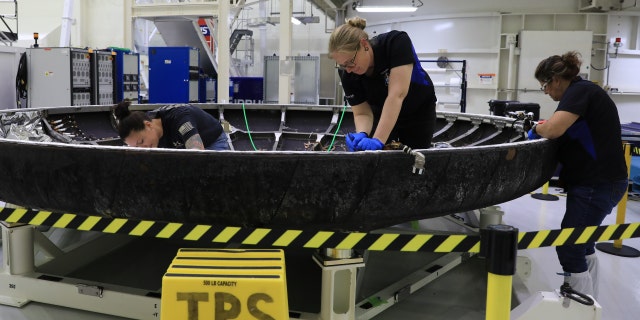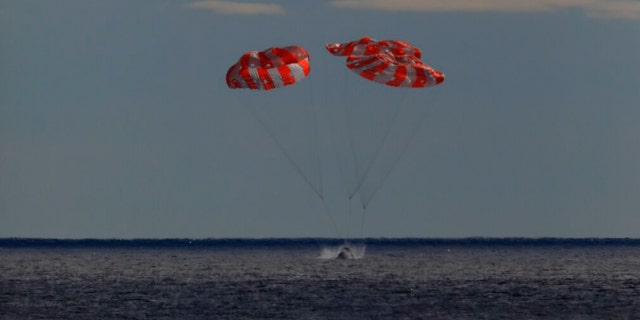[ad_1]
While NASA said its uncrewed Artemis I flight test proved successful, the agency also flagged areas to work on ahead of the next launch.
In a release on Wednesday, NASA said that its ground systems needed for launch and recovery are ready to fly astronauts on missions to the moon.
“We’re learning as much as we possibly can from Artemis I to ensure we fully understand every aspect of our systems and feed those lessons learned into how we plan for and fly crewed missions,” Jim Free, NASA’s associate administrator for the Exploration Systems Development Mission Directorate, said in a statement. “Safely flying crew is our top priority for Artemis II.”
Both initial and additional analysis of the Space Launch Systems rocket’s flight showed all of its systems met and exceeded performance expectations.
NASA SAYS IT’S TRACKING 161-FOOT NEWLY-FOUND ASTEROID THAT HAS ‘VERY SMALL CHANCE’ OF STRIKING EARTH
On the 19th day of the Artemis I mission, Dec. 4, 2022, a camera mounted on the Orion spacecraft captured the Moon just in frame as Orion prepared for its return powered flyby on Dec. 5, when it passed approximately 79 miles above the lunar surface. (NASA)
But, there were a few outliers.
For example, the mobile launcher sustained more damage than initially expected from the 8.8 million pounds of thrust generated at liftoff.
NEIL DEGRASSE TYSON SAYS JAMES WEBB SPACE TELESCOPE IS WINDOW TO UNIVERSE ‘NEVER BEFORE ACHIEVED’

Technicians examine Orion’s heat shield as part of post-flight analysis. (NASA)
Furthermore, NASA said engineers noted variations across the appearance of the Orion spacecraft’s heat shield in which the ablative material that helps protect it from the extreme heat of reentry “wore away differently than predicted.”

In this photo provided by NASA the Orion spacecraft for the Artemis I mission splashes down in the Pacific Ocean after a 25.5 day mission to the Moon, Sunday, Dec. 11, 2022. (NASA via AP)
Experts also continue to assess an issue observed during the flight where latching current limiters switched open without commanding several times throughout the mission.
CLICK HERE TO GET THE FOX NEWS APP
While work is underway to understand every issue, NASA said it is making progress before the Artemis II mission, noting that Orion had accomplished 161 test objectives and that all the spacecraft’s dynamic separation events were completed without issue.
[ad_2]
Source link
